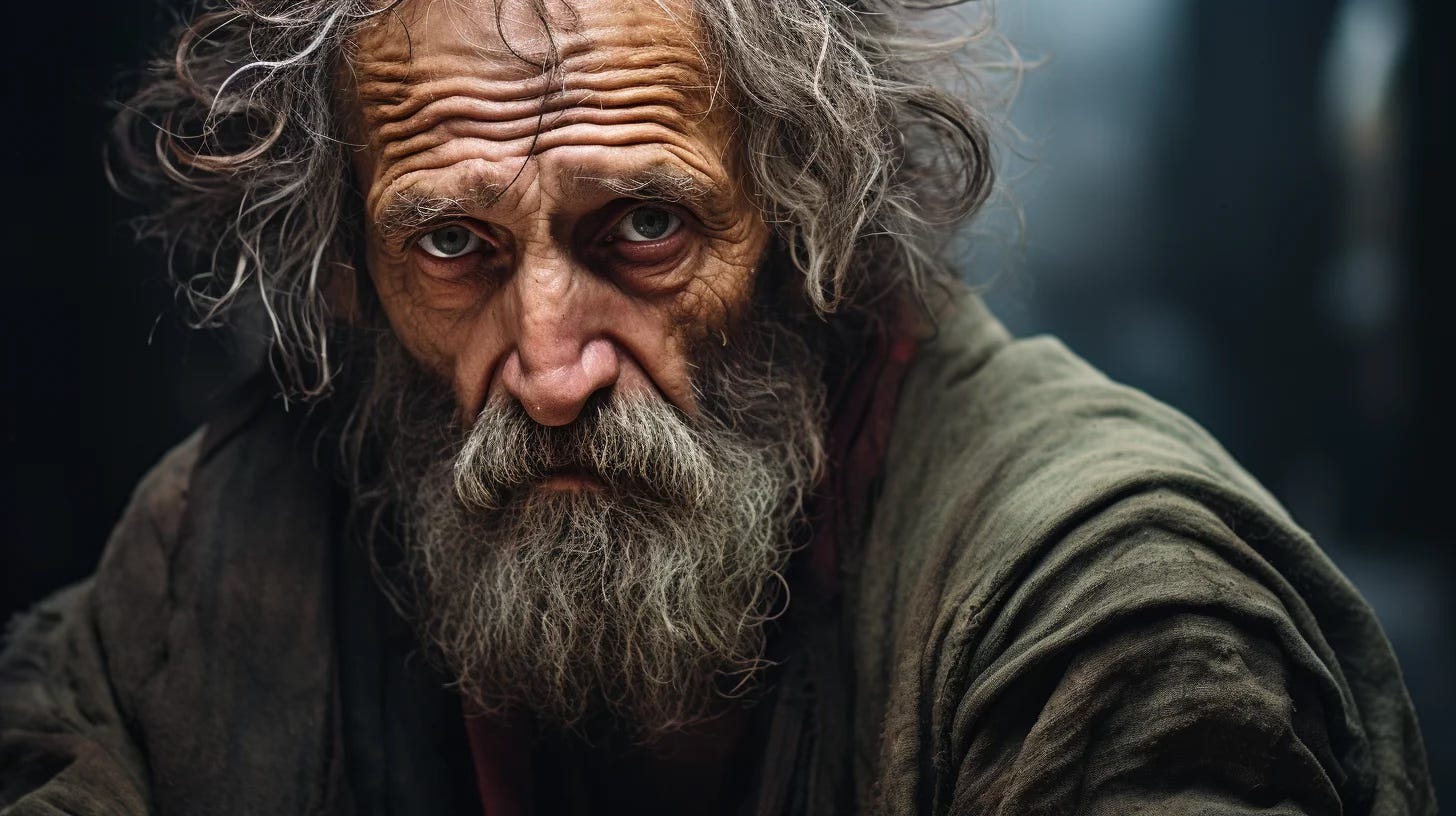The Odyssey: Reflections on Books 17 - 20
The stage is now set for the final confrontation with the suitors
The contrasts in The Odyssey give the reader a deeper level of understanding. People are contrasted and methods of hospitality compared. One of the best contrasts in the epic is Odysseus as a beggar vs the suitors. It is an absolutely brilliant comparison because it confronts the suitors with their method of behavior. The suitors have been taking handouts in the form of food and drink from someone else’s property. When an actual beggar, making the same requests, joins the fray, they want to drive him off.
Do the suitors see themselves in the beggar? It appears that they don’t. They consider themselves to be higher, to be better than this mere beggar. This points to a greater problem in Ithaca with the 20 year absence of Odysseus. The town has become a lawless place. Power and debauchery rule. An entire generation of leaders, mentors, and fathers were taken off to war. The result is a land full of cheats, liars, and thieves. The elevated title of suitor does little to hide their beggar status.
Odysseus maintains his composure amidst insults, hurled objects, and fights. This man of sorrow is also a man of deception and while he suffers, he quietly plans his next move.
In Books 17 - 20, Odysseus is testing his family, servants, and suitors. Much is happening on the human level, but there is another level of action. As told in Book 17, “Gods disguise themselves as foreigners and strangers to a town, to see who violates their holy laws and who is good.” Athena assists Odysseus in taking the form of a beggar and with that, the gods obtain insight into who treats the foreigners and stranger with respect. This is a human and divine test and many are failing.
As if there weren’t enough reasons to despise the suitors, books 17 - 20 show the full extent of how deeply the suitors are not just breaking every aspect of hospitality but of common humanity as well. Does this mentality exist outside of the group of suitors or is it widespread among the community? If this mindset exists in other parts of Ithaca, Odysseus is in more trouble after he regains control of his house and kingship.
There are some wonderful, very human scenes in these books. Eurycleia recognizes Odysseus by his scar. Penelope longs for her husband who is right next to her. In a touching scene, his old dog Argos recognizes him. Telemachus, now in the know, must reach for new levels of restraint as his father is berated in front of him.
The stage is now set for the final confrontation. Penelope has assigned a brilliant contest for the suitors to win her hand. It’s one her husband can accomplish but that a regular man cannot. What happens if no suitor can rise to this challenge?


